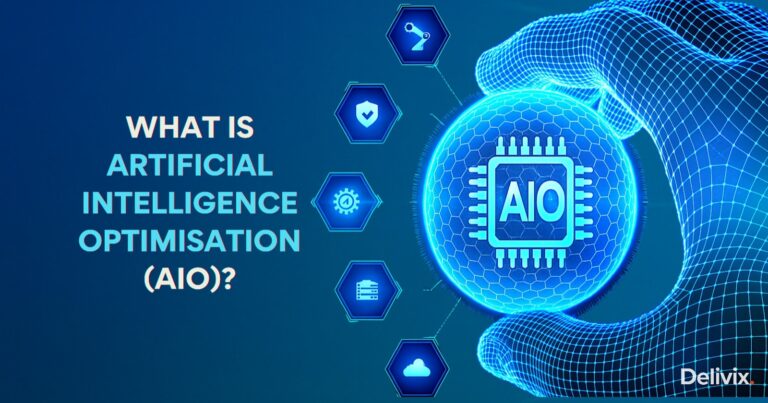Do you know? 94% of healthcare companies have reported the use of Artificial Intelligence in their key tasks. As you know, AI is transforming our lives rapidly and propelling us towards technological advancements. However, some ethical concerns are rising regarding its use in healthcare. Here is the research article on ethical concerns for AI in healthcare.
Traditionally, the healthcare sector relies heavily on human expertise, manual processes, and traditional tools. Whenever you visit a hospital, you witness physical examinations, laboratory tests, and medical imaging services provided by doctors and healthcare personnel. However, the advent of AI has changed everything. It eliminates the need for physical tasks and personnel. It also significantly improves accuracy and precision.
In this blog, we’ll discuss the rise of AI in healthcare, ten ethical concerns about AI in healthcare, and the essential steps to address these concerns.
The rise of AI in healthcare
While the integration of AI in healthcare might be new for some people, it is not. It was initially used in healthcare during the 1970s when an AI-powered program, MYCIN, was produced. This program helped healthcare specialists identify blood infection treatments. It also significantly allowed the healthcare sector to collect and process data quickly, assisted in precise surgical procedures, extensive DBA research, and accurate electronic health records.
Artificial Intelligence heavily relies on deep learning and machine learning algorithms to work. It uses them and simulates human-level intelligence. Consequently, it enables it to perform humanised cognitive functions, such as critical thinking, recording, and problem-solving. However, the only thing required in this regard is feeding the data and information to AI algorithms.
Benefits of AI in healthcare
As AI is an ever-evolving field, it is also transforming healthcare and all related sectors. Nowadays, healthcare personnel undertake their key tasks much more accurately, precisely, and quickly than they had to before the incorporation of Artificial intelligence. This has not only reduced labour costs but also streamlined sectoral activities efficiently. Here are a few advancements that AI has provided us in the healthcare sector:
- It enhances medical imaging analysis
The first benefit of AI in healthcare on this list is the advancement in medical imaging analysis. AI algorithms can thoroughly assess and analyse X-rays, MRIs, and CT scans. This significantly helps in identifying early signs of fatal diseases such as cancer, tumours, or neoplasms, which allows doctors to intervene early and treat them.
- It helps in drug discovery and development
Drug development and trials are time-consuming tasks. Identifying potential drug candidates is very difficult; however, AI algorithms can efficiently analyse extensive biological and chemical data of patients and narrow them down to promising candidates. It significantly saves time and drug development costs for health specialists.
- It enables to produce precise medicine
With the integration of AI, personalised medicine plans for patients are also becoming a reality. It analyses the patient’s medical history, lifestyle, and genetic information to develop tailored medicine plans. It significantly helps to treat their diseases more precisely, leading to higher patient satisfaction scores.
- It facilitates virtual health assistants
Artificial Intelligence is also revolutionising the idea of virtual health assistants. It enables AI algorithms to listen to the patient’s health concerns and provide prescriptions accordingly. It can also be available round the clock. Do you know? 55% of healthcare employees expect that virtual health assistants will result in lower healthcare costs in the near future.
- It increases accuracy & precision in surgery
AI technology can also help develop robotic surgeons, and AI-generated robots can perform complicated surgeries much more efficiently. They can perform surgeries with more precision and accuracy than human surgeons. According to CeleventClinic, robot-assisted surgery has a success rate of 94% to 100%.
Ten key ethical concerns of AI in healthcare
Do you know? The US Food and Drug Administration (FDA) anticipates using AI in healthcare and harnessing its full potential. Moreover, the European Medicine Agency (EMA) is also focusing on using AI technology in healthcare to automate processes and systems efficiently. As AI in healthcare is becoming prominent globally, its implementation also raises several important ethical concerns. These concerns must be addressed efficiently to ensure equitable and responsible use. Here are the ten key ethical concerns of AI in healthcare:
1. Patient privacy and data security
The main concerns about AU in healthcare are patient privacy and data security. As you know, AI requires the feeding of important and personal patient data, such as genetic information, medical records, and biometric data. Sol, along with it, the risk of a data breach, misuse, and unauthorised access also rises significantly, challenging the reliability of AI in the health sector.
2. AI algorithm bias and unfairness
Another ethical concern raised by AI implementation is algorithm bias and unfairness. AI models operate on already-registered data and information and sufficient relevant training. If any biases, errors, or omissions are present in that data, the AI algorithm is also likely to perpetuate those biases accordingly, which can lead to unfair and discriminatory outcomes that are usually frowned upon in the real world.
3. Transparency and explainability
Transparency is also a major concern when it comes to AI in healthcare. AI algorithms make decisions using added information and details, making it difficult to understand their phenomenon. Due to this, they are also called “Black Boxes.” For instance, if you use AI to undertake a key process but don’t know the logic involved in its operation, you also can’t explain its decision if you’re held accountable for it.
4. Overlooking critical human judgement
Another major risk associated with integrating AI in healthcare is overreliance on it. According to a report by the US National Library of Medicine, 53% of respondents rated the use of AI in healthcare as positive or very positive. The other segment of respondents believed that AI might cause healthcare professionals to overlook critical human judgment. This can significantly compromise the health of patients.
5. Informed consent & autonomy
Ethical concerns of risk and autonomy have also been raised regarding artificial intelligence in healthcare. Patients should always be aware of and consent to the treatment methods being used on them. As AI algorithms are not similar to the human mind, they also impact medical care and provide their calculated decisions. So, in this case, patient consent and autonomy in their treatment plans become immensely crucial.
6. Complexities in accountability
Whenever a human doctor makes errors in their treatment procedures, they are held accountable and liable to explain all the key steps taken. However, in the case of AI, this process of accountability becomes complex. As you know, AI algorithms use a large amount of data. So, to explain their errors, healthcare providers need to understand all the development, deployment, and use of AI. The accountability process also encompasses AI developers and regulatory bodies.
7. Available in limited Spaces
Another ethical concern of AI in the healthcare sector is its accessibility and availability. According to 53% of consumers, AI will make healthcare more accessible and available. However, Artificial Intelligence is an advanced technology and can only be installed in a highly advanced setting. Places, such as rural areas, that rely on traditional means of healthcare might be overlooked by the advanced medical treatment offered by AI.
Want AI solutions for your company?
From chatbots to automation & predictive analytics, we help businesses get the most out of AI.
Boost efficiency. Reduce costs.
Book a Consultation8. Challenges while training AI
AI algorithms are trained by feeding them data and information, checking their response and performance, and testing. This process also involves using patient data at various times to feed, analyse, and test responses. So, the main ethical concern arises due to their privacy and protection. It can not just raise privacy concerns but also put the authenticity of the data at risk, as AI algorithms can make several mistakes and errors while in training.
9. Job displacement
As with the employment of AI, the need for humans becomes zero. Another important ethical concern that arises due to AI in healthcare, not just for patients but also for healthcare providers, is job displacement. According to PwC’s research, AI integration in the healthcare sector can cause the displacement of seven million existing jobs. AI in healthcare would not just compromise the treatment and care quality but also result in mass job displacement.
10. Risk of exploitation
Another ethical consideration related to AI in healthcare is the risk of its exploitation. Humans record patient data and information in AI algorithms, so they have access. This also enables them to use their data for non-medical and commercial purposes. Moreover, cybercriminals might bypass security defenses and steal healthcare data or compromise the authenticity of data. According to a report, 60% of patients might feel uncomfortable while receiving AI-generated healthcare.
Steps to address ethical concerns of AI in healthcare
According to Statista, AI in the healthcare market is worth US$13bn and is projected to reach US$188bn by 2030. As AI in the healthcare market grows rapidly, it will gradually prevail everywhere, providing us with advanced treatment procedures and medical plans. So, you must take essential steps to address the ethical concerns that arise from the use of AI in health care. Here are the steps that you should follow in order to make efficient use of AI in healthcare:
Step 1: Develop clear ethical guidelines
The first step to addressing AI’s ethical concerns in healthcare is to develop clear ethical guidelines. The guidelines should encompass principles such as accountability, fairness, and transparency. This significantly ensures that every person in the healthcare sector is liable to adhere to them.
Step 2: Ensure patient privacy and data security
Ensuring patient privacy and data security is crucial whether the AI is present or not. However, advanced security measures must be taken to protect patient private data and information and refrain from sharing it with any third party. Moreover, data encryption techniques can significantly reduce privacy risks.
Step 3: Eliminate bias from AI algorithms
The next step is to check AI algorithms daily to assess the possibility of any bias. If there is any, mitigate it immediately. You should also use diverse data and information that represents all population groups according to their race, sex, ethnicity, sexuality, and genetic code. This can significantly help eliminate bias from AI algorithms.
Step 4: Ensure transparent AI practices
Healthcare specialists should be fully equipped with AI integration processes and all their functions. This helps make it explainable during auditing and promotes transparency significantly. Moreover, clear documentation should be carried out according to the patient’s name, age, and disease. It helps in well-informed decision-making.
Step 5: Promote regular auditing
Regular auditing is essential to address ethical concerns regarding AI in healthcare. You should regularly monitor all AI systems and algorithms post-deployment to ensure that everything is going as it should and meeting all the ethical guidelines. Regular auditing significantly helps identify potential errors in AI and helps manage them efficiently. It also allows experts to maintain system integrity.
Step 6: Train healthcare providers efficiently
The next step is to efficiently train healthcare providers and educate them about all the ethical concerns of AI in healthcare. This will help them not only understand potential risks and recognise different biases but also core AI algorithms’ decision-making processes. When they are knowledgeable about AI processes, they can interpret them efficiently, ensuring transparency for a longer period.
Step 7: Involve sealthcare stakeholders
Involve all the stakeholders in the healthcare sector, such as patients, doctors, professionals, lab technicians, and ethicists. Listen to all their concerns about using AI systems and how you can address them efficiently. This will help you significantly deploy and evaluate AI systems, meeting all real-world needs.
Conclusion
In this blog, we have comprehensively discussed the rise of AI in healthcare, its benefits, ten ethical concerns that arise due to AI in healthcare, and the essential steps to address them efficiently. By understanding these ethical concerns, you can detect them in a timely and take essential steps. You can address them promptly without causing any significant damage to patient data.
The applications of AI, not just in healthcare but in every path of life, are increasing daily. Sooner or later, we’ll be compelled to tend to AI systems and accept them wholeheartedly. The use of AI raises several ethical concerns. Still, by having comprehensive knowledge about it and by taking the required precautionary measures, you can ensure precision, accuracy, and advancements in healthcare treatments efficiently.
Read More: How will AI affect the industry?
Frequently Asked Questions
- Patient privacy and data security
- AI algorithm bias and unfairness
- Transparency and explainability
- Complexities in accountability
- Job displacement
- Develop clear ethical guidelines
- Ensure patient privacy and data security
- Eliminate bias from AI algorithms
- Promote regular auditing
- Train healthcare providers efficiently


